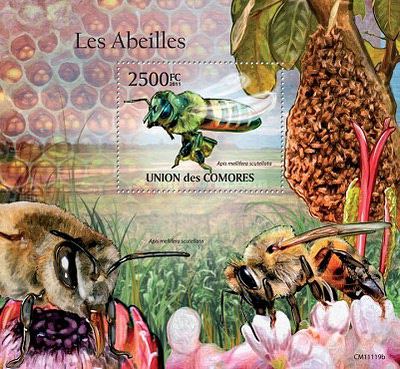Recent declining numbers of honeybees, Apis mellifera, in colonies threatens crop production as well as feral plant community biodiversity. Chemicals applied in agroecosystems are regarded as one of primary causes of the decline. In Japan, the heavy loss of honeybee colonies associated with pesticide use has been reported from beekeepers recently, leading to lessened use of honeybee colonies to facilitate pollination of cultivates. Nevertheless, no study has quantitatively examined the damage to honeybee colonies caused by the pesticide application in Japanese agricultural fields to date. To explore actual honeybee damage caused by the pesticide use, we performed an extensive survey of honeybee colony loss putatively caused by pesticide application by asking Japanese beekeepers to identify bee losses for three years: 2008~2010. The respective numbers of damaged honeybee hives were 11,659, 11,533 and 8,328. The estimated amounts of damage were JPY 201.1 million, JPY 253.8 million, and JPY 178.0 million for 2008, 2009, and 2010. Heavy losses were concentrated in particular prefectures (Hokkaido, Iwate, and Wakayama) although losses occurred throughout Japan. In Hokkaido, the area of damage was concentrated exclusively in central areas. More than 90% of damage occurred in mid-summer. Pesticide-sprayed crops, suspected of causing the loss, amounted to 20 crops, but 75.0~83.3% of damaged hives, and 86.0~92.3% of damage amounts were of only two crops: rice and orange. Overwhelmingly, neonicotinoids were identified as responsible for the losses, accounting for 91.4% in 2009 and 81.7% in 2010 for damaged hives, and 93.2% in 2009, 92.4% in 2010 for damage amounts.
Source:
Takaharu Taniguchi et al. Journal of Apiculture 27(1) : 15~27 (2012)

- Login om te reageren
